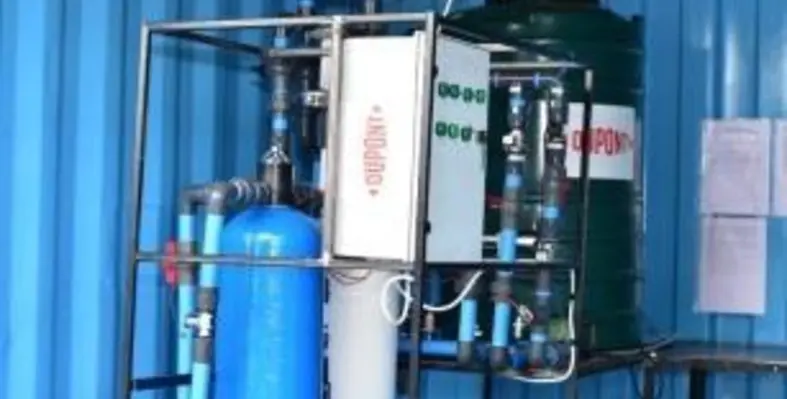In South Africa, one out of three schools do not have access to safe water and clean sanitation, putting school children at risk of serious sickness from waterborne diseases and keeping pupils, especially girls, away from school
Digging deeper for water or relying on the river is not always an easy option, at least not without effective treatment, due to inherent high levels of fluorides and salts and increasing levels of nitrate and phosphorous pollutants from agricultural runoff.
To overcome this, many regions are installing water purification systems that are owned and run by the local community. One example is in Temba, north of Pretoria in the Republic of South Africa. A new solar-powered borehole pumps raw water to a multi-stage purification system on the site of the Reneilwe Primary School. The ultrafiltration membrane and ultraviolet light system can supply up to 4,000 litres of healthy drinking water per hour, serving the local community and neighbouring Itereleng Primary School by means of an on-site water kiosk.
DuPont paid for the borehole and solar plant, and donated the water treatment hardware. Furthermore, five “water champions” from the community have been trained in the operation and maintenance of the technology, which is highly automated but still requires a basic level of technical supervision.
The project was inaugurated on the 2021 World Water Day, 22 March. Developed in partnership between the South African N.G.O. Kusini Water, the US embassy and DuPont, it provides a lifeline for the health and wellbeing of the community. The community of Temba is now one of over 30 sites in the country that Kusini have helped in their mission to provide five million people with five million litres of safe water in five years. Putting the system in the hands of citizens not only ensure the system’s sustainability, but also enables long-term impact on how people value and treat water. The topic and the technology has featured prominently in school lessons and the water kiosk is a focal point for the community.
The company is proud of its work in helping to achieve the Sustainability Development Goals, not least #6 – clean water and sanitation. As even the most advanced water treatment technology becomes increasingly automated and reliable, the opportunities for communities to install and run their own systems is gaining momentum, helping connect more people and possibilities to flow.












